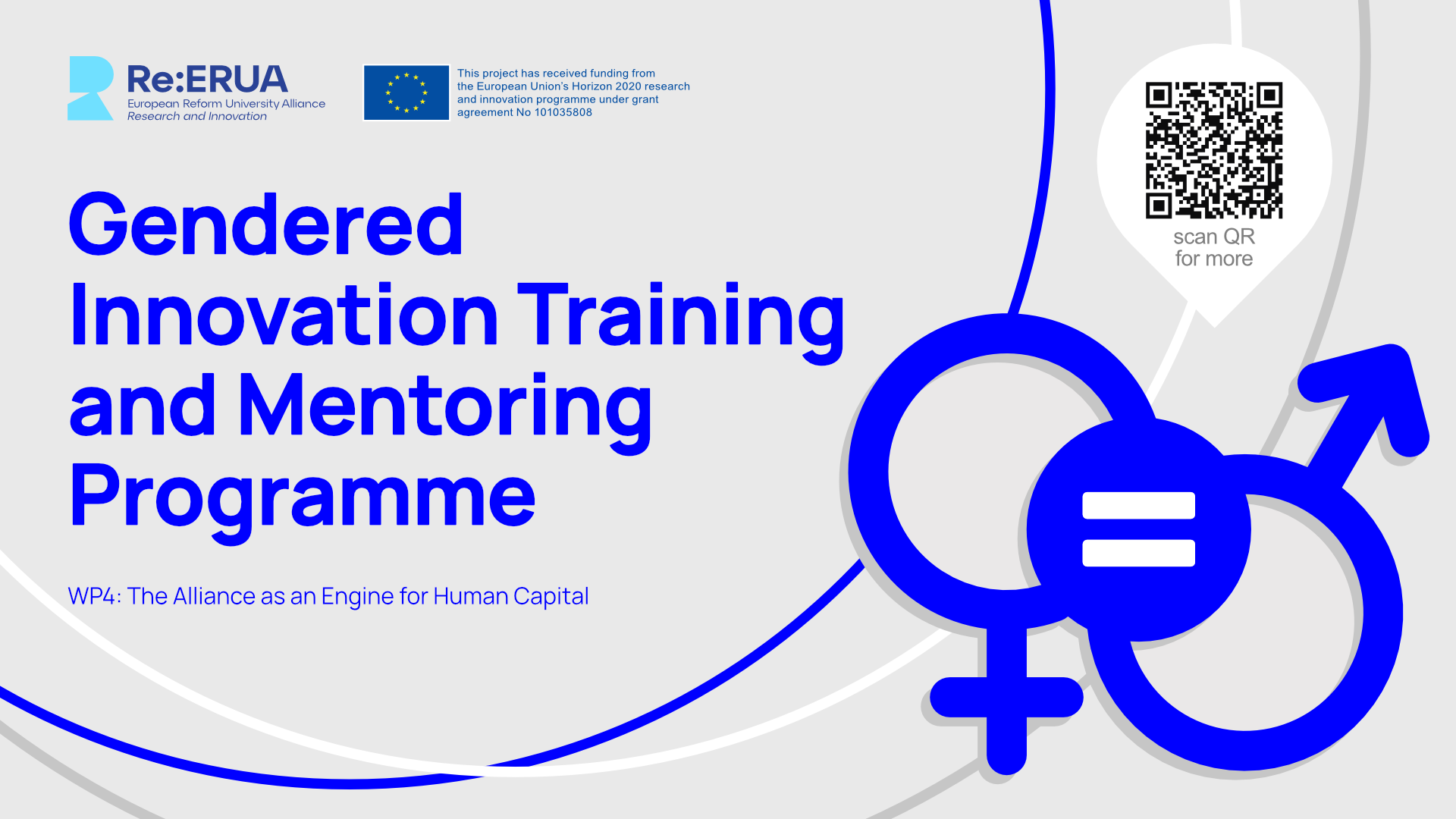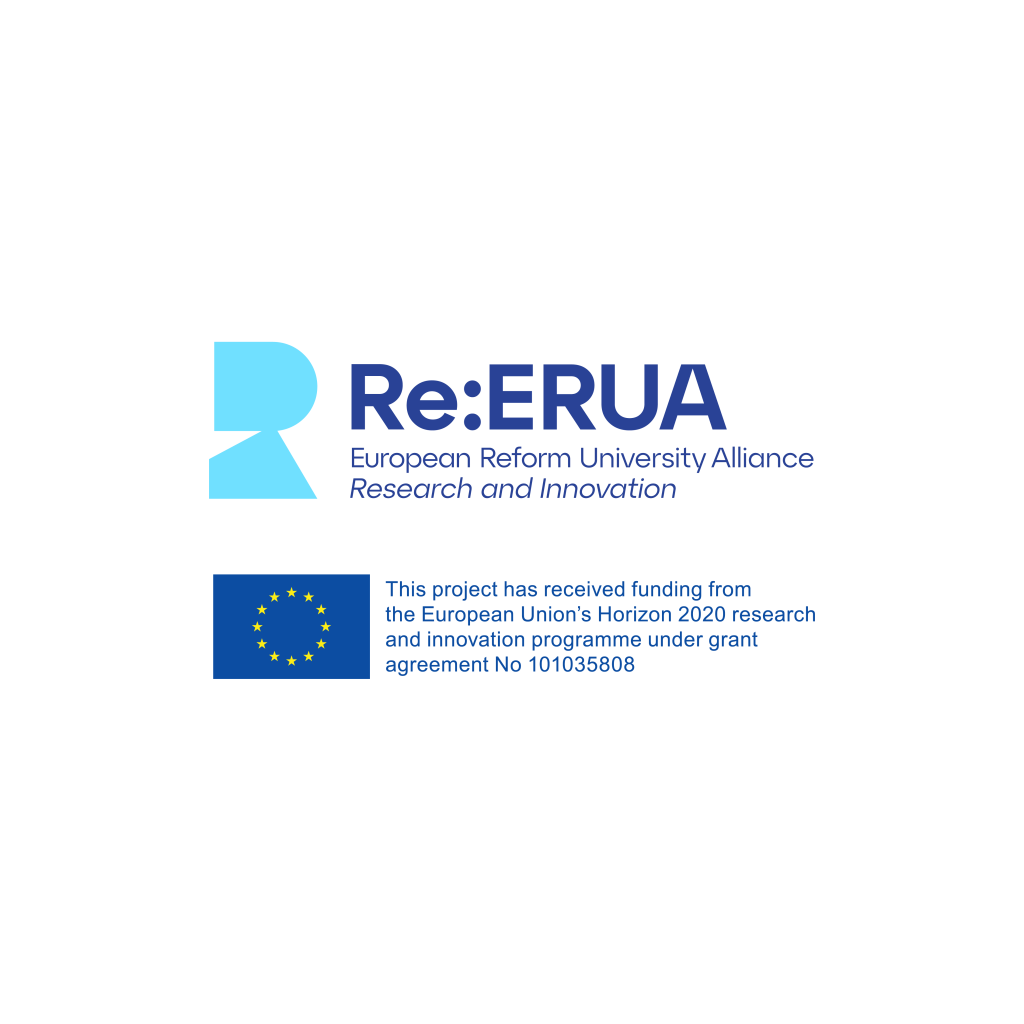 One of the major objectives of WP4 “The Alliance as an Engine for Human Capital”, which is led by the University of the Aegean is to promote specific training initiatives on innovation and relations with societal actors, new research environments linking innovation and diversity and facilitate the access of women scientists, entrepreneurs, migrants/refugees in the field of innovation with innovator and societal actors, promoting virtual mobility schemes and developing specific innovation-oriented pilot projects and schemes.
One of the major objectives of WP4 “The Alliance as an Engine for Human Capital”, which is led by the University of the Aegean is to promote specific training initiatives on innovation and relations with societal actors, new research environments linking innovation and diversity and facilitate the access of women scientists, entrepreneurs, migrants/refugees in the field of innovation with innovator and societal actors, promoting virtual mobility schemes and developing specific innovation-oriented pilot projects and schemes.
Thus, a Gendered Innovation Training and Mentoring Programme (D4.6) on leadership, entrepreneurial and innovation-oriented mindsets, social innovations has been created. The training programme provides tools and knowledge to women and men who seek to enhance the positive social impact of technology and innovation. Training activities are carried out through digital courses and workshops that bring together women from business, academia, government (innovator actors) and societal actors such as NGO, refugees/ immigrants.
Exploring ‘gender’ (as a construction in its binary and non-binary forms) and ‘(in)equality’ (in a legal and social sense), recognizing it as needing to be understood as intersectional, and both transnationally and as geographically/culturally located. The aim of this module is to introduce participants to the concept of gender and (in)equality focusing on the effect of tradition, social expectations, language, culture and everyday practices in the construction of masculinities and femininities. Gender justice and human rights will be also discussed in the frame of a fair and sustainable development.
Although women are active in workspace, they still have more care responsibilities within family, while also in many cases they face gender discrimination in education, child marriage and unrecognized domestic works. The segregation of household labour is crucial and the balancing between work and family life is a major challenge for women.
This module aims at introducing participants to topics as gender imbalance of domestic roles, reconciliation of family and work life, focusing also on problem that womens refugees, migrants and imprisoned face.
Central to EU’s strategy for smart, sustainable and inclusive growth is the implementation of a modern organization of work, a knowledge economy, competitiveness, and more and better jobs. Despite the considerable progress regarding women’s labour market participation over the last decades, inequalities between women and men persist.
The aim of this module is to introduce participants to women’s labour market participation identifying norms and attitudes that constitute obstacles which restrict women’s access to jobs or career promotion, while also focusing on opportunities for women in the frame of EU policy and national policies.
Encouraging and supporting women’s participation in positions of political responsibility is crucial for the fairness and responsiveness of governments and local authorities. However, data collected 5 globally show women’s under-representation in decision-making bodies (governments, parliaments) which becomes larger in more senior positions.
The aim of this module is to introduce participants to women’s political representation topic identifying factors that prevent women from participating in political institutions, while also focusing on the phenomenon of sexism within parliaments. Moreover, policies used to empower women’s political participation are presented.
Gender Inequality in workspace (women from businesses, public organizations and Authorities, NGO’s and Academia share their job experience highlighting gender barriers they confronted in workspace and proposing solutions to overcome socially constructed gender roles, to help women (refugees and migrants) to integrate to workplaces, to achieve higherpaying jobs, to have opportunities for promotion and leadership).
Women in decision-making positions (MPs, women from local authorities, Organizations for Gender Equality and activists share their experiences highlighting the problem of women’s under-representation in political institutions and structures at local or national level, while also focusing on the need to encourage women to participate in politics, to raise gender issues and to advance a gender-balanced agenda within political institutions and democratic processes).

The European Commission's support for the production of this publication does not constitute an endorsement of the contents, which reflect the views only of the authors, and the Commission cannot be held responsible for any use which may be made of the information contained therein.
ERUA AI: Hello, I am an AI bot. Ask me anything!
| Cookie | Duration | Description |
|---|---|---|
| cookielawinfo-checkbox-analytics | 11 months | This cookie is set by GDPR Cookie Consent plugin. The cookie is used to store the user consent for the cookies in the category "Analytics". |
| cookielawinfo-checkbox-functional | 11 months | The cookie is set by GDPR cookie consent to record the user consent for the cookies in the category "Functional". |
| cookielawinfo-checkbox-necessary | 11 months | This cookie is set by GDPR Cookie Consent plugin. The cookies is used to store the user consent for the cookies in the category "Necessary". |
| cookielawinfo-checkbox-others | 11 months | This cookie is set by GDPR Cookie Consent plugin. The cookie is used to store the user consent for the cookies in the category "Other. |
| cookielawinfo-checkbox-performance | 11 months | This cookie is set by GDPR Cookie Consent plugin. The cookie is used to store the user consent for the cookies in the category "Performance". |
| viewed_cookie_policy | 11 months | The cookie is set by the GDPR Cookie Consent plugin and is used to store whether or not user has consented to the use of cookies. It does not store any personal data. |